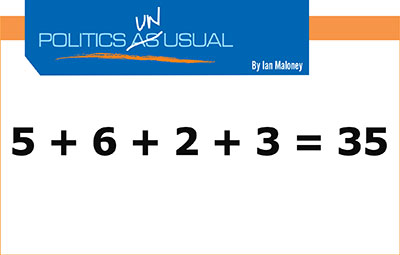
Things are changing, folks, and they are changing fast. Earlier this week, the Supreme Court of the United States (SCOTUS) decided not to hear any of the cases dealing with marriage equality laws, delivering a devastating loss to bigots and homophobes across the country. Just like that, five more states were added to marriage column and LGBT couples in those states began applying for legal marriage licenses almost immediately. The very next day, the 9th Circuit Court of Appeals struck down bans in Idaho and Nevada, clearing the way for homos to lineup along with breeders to get married by Elvis on the strip in Vegas. By the time this article reaches you, there could be even more breaking developments, but let’s focus on what we know as of this moment. Marriages are already happening in seven more states, bringing the total to 26 states that allow LGBT couples to marry. In nine more states, marriage is inevitable, with cases there expected to be wrapped up in the coming days and weeks.
The surprise move by the high court was denounced as disappointing by both sides. Proponents of marriage equality were hoping to get another win on the heels of the Windsor verdict last summer. Defenders of hate and bigotry were hoping that the court would strike down the lower court’s rulings and say that the states do, in fact, have the right to pass laws that discriminate against gays and lesbians who want to marry their partners.
Like many people who have followed the Court’s actions as the justices have begun their current term, I fully expected them to hear at least one of the cases that had worked its way that far in the judicial process. It really would be great if there was a definitive ruling about marriage equality, but for some unknown reason, the SCOTUS didn’t feel the need to get involved. Pundits on both sides flocked to the media with opinions, but facts are facts, and a win is a win is a win. Try telling LGBT couples in Richmond or Tulsa that you are disappointed… The couple from Oklahoma, who sued a day after that state amended its constitution to define marriage to exclude LGBT couples, has been waiting a decade to get married, and they finally have the chance. They are certainly not disappointed. The victory should be celebrated by the LGBT community, since any time more of us get the right to marry, we all win.
When the court decided not to act, it effectively ushered in the first gay marriages in the more conservative areas of the country. Virginians and Oklahomans celebrated by flocking to courthouses to say “I do.” In six other states, rulings should go into effect soon, with marriages just days away in those states. Lawmakers in Colorado, one state that had an appeal in process, gave up on their appeal since it would be useless now that another ruling invalidating anti-gay marriage laws was allowed to stand in their circuit (jurisdiction). That means that a total of 16 states are now seeing, or will eventually see, marriage equality, bringing the grand total at the end of all of this to 35 states and more than 60% of the U.S. population.
At home in Florida, Attorney General Pam Bondi, who is on her third marriage, stuck to her guns and refused to even consider changing her position of defending the state’s anti-gay laws. This past summer, in a series of five rulings throughout the Sunshine State, judges declared our marriage ban unconstitutional while staying their rulings pending outcome of appeals. And appeal she did. She has stated that she is just following the will of the people and that judges shouldn’t decide at the state level…we should let the federal judiciary decide at the level of the Supreme Court. In one of the rulings, the stay as applied now will only last for 90 days after last week’s Supreme Court decision. Immediately, gay rights organizations petitioned the judge to remove his stay now and allow marriage equality to come to Florida. The state has a limited time to respond to the petition and the judge’s ruling could come right around Election Day.
Attorney General Bondi and the Dark Lord Governor Rick Scott are up for re-election this year. Scott faces a weak challenge from former Governor Charlie Crist, a real flip-flopper who now is a Democrat after being run out of the Republican Party and running for U.S. Senate (and losing) as an independent. Crist, who used to be a homophobe, but now sees the error of his ways, has (at least) urged Governor Scott and Attorney General Bondi not to defend the constitutional amendment and not to appeal the rulings from this summer. Gay voters, if they flock to the polls this November, could make the difference in who is chosen to lead our state into the future.
A future that is looking much brighter for the LGBT community after our streak of nearly 40 wins since the Windsor ruling.















